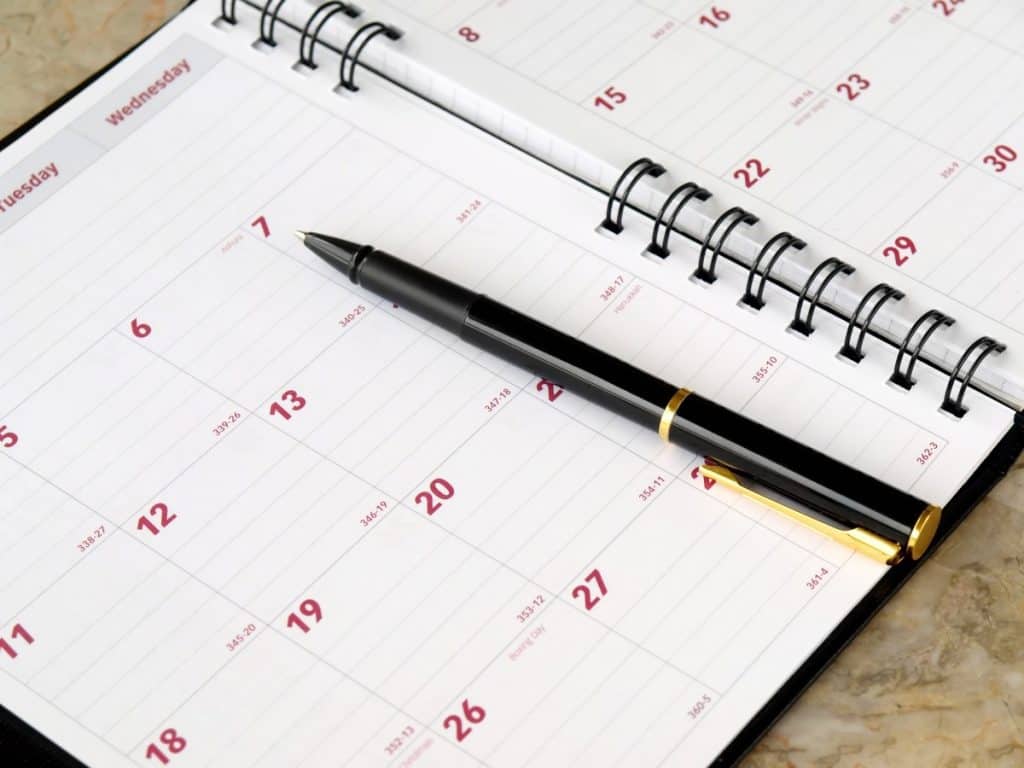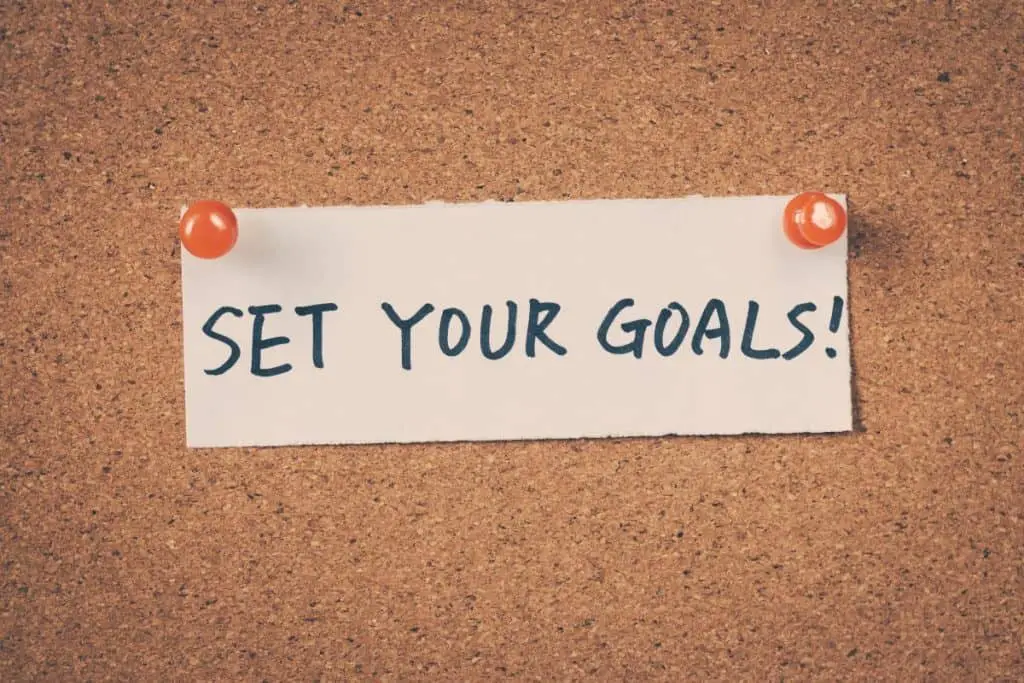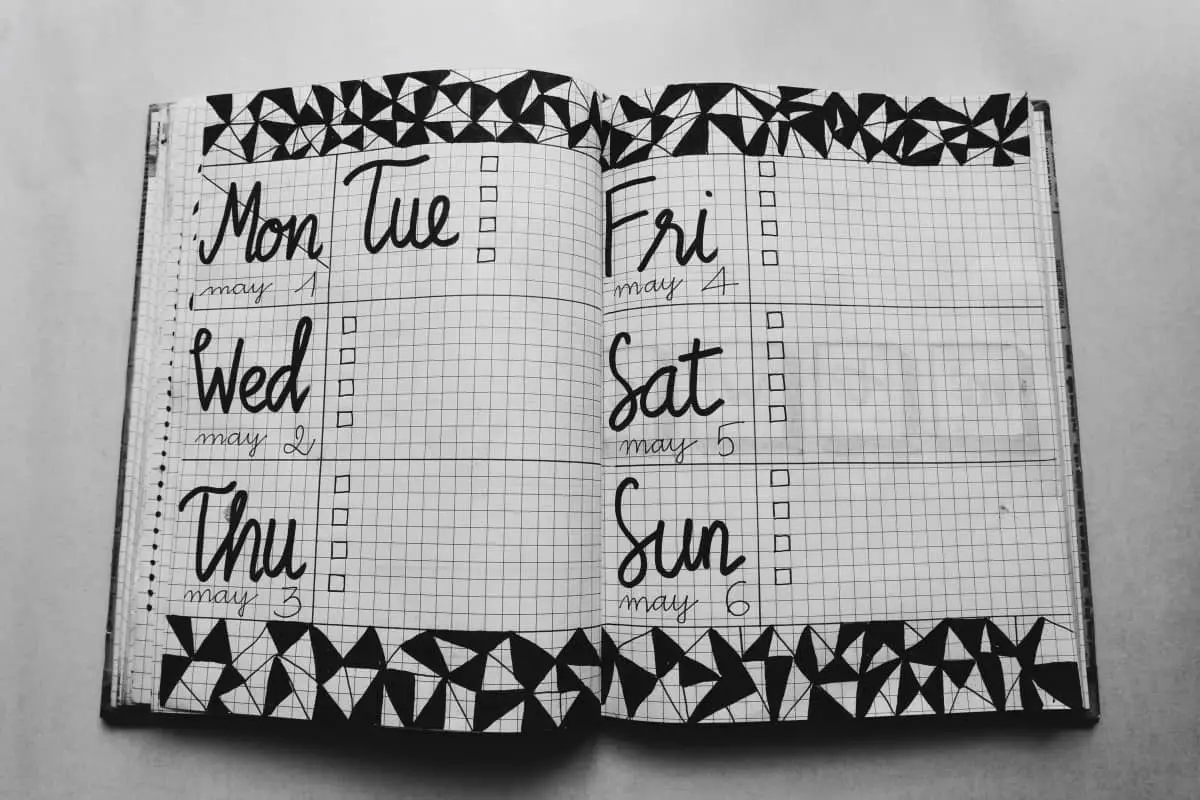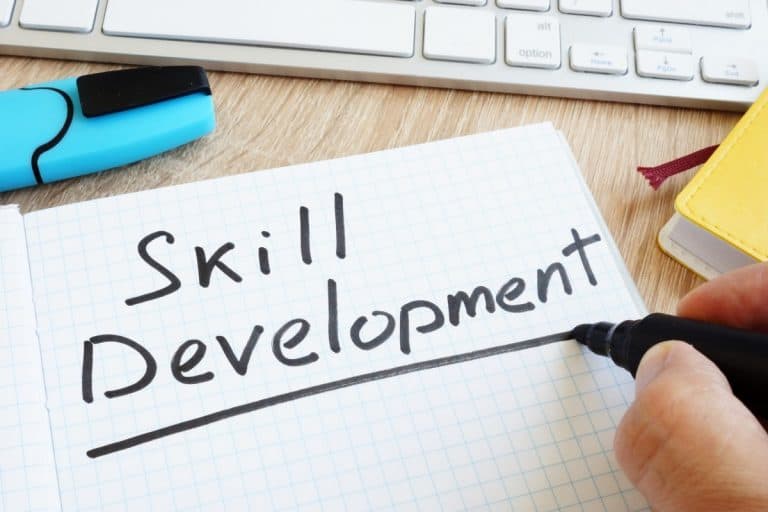Should I Study Every Day? We Have the Answer!
Well, maybe not every single day but studying about five days a week would be a good target. If you often find yourself cramming the night before a test or struggling to sit through long study sessions once a week, then you definitely should be studying at least five days a week.
If you are a full-time student, taking 12-18 credit hours per semester, then you should be studying at least 24-36 hours per week. So, should you study every day? Yeah, you absolutely must study almost every day in college to make it through with strong academic achievement.
You are probably thinking that studying for 24 to 36 hours per week sounds like overkill and slightly unachievable, but it’s not. Let me tell you why that number is so high, and I will even help you figure out how to fit all that study time into your schedule!
By the way, if you are looking for some study tips that can significantly improve your academic performance, check out our essential study tips at the link below:
Before we get started, if you are looking to improve your writing, you should really check out Grammarly. Grammarly is a godsend for those who have to write term papers, dissertations, or anything else you write that needs to be grammatically correct. Grammarly doesn’t just check grammar either. It helps you to write clearly and effectively by checking for overused words and unclear phrases. Best of all, Grammarly has a great free tier to get started with. For more information on Grammarly, click the link below:
Grammarly – Great Writing, Simplified
If you are looking for the best study tools out there, you should read our article on the best study tools to enhance your studying at the link below:
The Ultimate Study Tools You Must Use to Succeed!
Why is it Suggested You Spend Twice as Much Time Studying as in Class?
First, let’s define “Study Time”. I know a lot of people who think study time is merely reading the textbook over and over again or making a set of flashcards and flipping through them a dozen times until they have memorized all of the little details; that is not studying 24 to 36 hours. Studying includes anything that you are doing to progress yourself through the subject.

Studying starts on day one, or sometimes even before the first day of class when you get your syllabus. From that moment on, you have class material to study. Start by simply reading through the document and taking notice of any specific due dates or pieces of information that stands out. Then marking the days on your calendar and storing your syllabus in your binder for later, in case you need to refer to some policy. There are a few other administrative tasks like keeping up with important dates or scheduling a time to meet with your professor etc. but that shouldn’t take more than 30 minutes per week.
Reading assignments are also part of study time. Reading a whole chapter in a textbook can take a while, especially if you take the time to read it thoroughly for maximum retention and understanding. I would estimate the average reading time per week to be about 3 hours.

After reading your text, you probably have some homework to do. If your homework is just the question page at the end of the chapter, you might only have to put in 1-2 hours, but usually, there’s more than that.
Active Learning
Active learning is where you need to spend the bulk of your time; this is where the learning turns into knowing. Reading your textbook and answering questions about the material help you learn the individual facts and help you understand the concept of the subject. That is the base information you need to know to start discussing, dissecting, and questioning the material. This preparation can happen in numerous ways, like talking with your peers in a study group at a café after class or doing an assigned project or class presentation. You can also engage your brain by looking up a podcast to hear how to apply your particular subject in the “real world” or how it can solve “real world” problems. You should spend 5 – 6 hours engaged with the subject every week.

Another part of study time is making review material. Don’t underestimate your class notes; when you take notes in class, make sure to review them right afterward to expand on anything. I used to be notorious for taking pages of notes in class and then still not knowing what the professor or myself was trying to say. It should only take 5 minutes after each class to go through and clarify your notes.
If you want a great system to take notes, check out our article on the Cornell Note-Taking System. This system is awesome and will turbo-charge your study time. You can find the article at the link below:
How to Use the Cornell Note-Taking System
Flashcards (affiliate link) are a great resource to have, as well. They are great for small details like names and dates, but you can also write the name of intensive theory and quiz yourself to make sure you truly understand the concept. Making useful flashcards can take some time, so this can take up to 2 hours a week.
When it’s finally Friday, and you are wrapping up for the weekend, don’t forget to review everything you have learned that week. Spend at least 1 hour reading through your notes, flashcards, or textbook before you put it all away for two whole days. It’s worth mentioning that, about twice a semester, you will have an extensive exam; you will want to spend more time reviewing for these.
After reading through the last few paragraphs, you can start to see why it takes so much study time to be a successful college student; and that was for just ONE class. Most importantly, the purpose of college is to teach you how to learn and research on your own; the professor gives you a lecture to get you started, but after that, you are on your own to learn the subject. They are teaching you how to be resourceful, and there is no skill more useful than that.

Tony Robbins said, “It’s not what we do once in a while that shapes our lives, it’s what we do consistently.” Really, would you expect to see major muscle development out of someone who worked out once a week for an hour or two? Nope, the people who want 6-packs work out almost daily. The same goes for studying. If you are not making it a daily ritual, then you are not prioritizing correctly. So, next, I will help you figure out how you can put all that time into your out-of-class study.
How can you possibly manage to study for that long every week?
Start by making study time a priority. It is so easy to run into a friend after class and end up going out for lunch and drinks when you know you should be studying. Then you think you will make up your study time later that night or another day to be disappointed in yourself when you realize a whole week has gone by and you’ve done tons of social activities and no studying. It happens to the best of us, but it goes to show that if you don’t make study time an absolute priority, it may slip away from you.
When I say make study time a priority, I mean a necessary-to-live type of importance. Do you eat every day? Brush your teeth every day? Put on clean clothes? Go to class? I’m going to assume that you do; study needs to be the same level of priority. Is it that serious? Yes, let me explain.

Our level of motivation is finicky, and our willpower is a minimal resource. Right now, you are probably highly motivated to make studying a priority in your life, but tomorrow evening, after a stressful day in class and word of a harry potter marathon get to you, your determination to study may wane.
Every decision you make, every unexpected even, every small stress depletes your willpower, and by the end of the day, we are usually beat. When you spend all of your willpower elsewhere, you have no motivation left to study. Therefore, your next step is to turn this priority into a habit. When you create patterns of behavior, you will not need to exert much willpower to get it done, just like all those little habits you do every day that keep you clean and healthy.
So, you are convinced to prioritize your study time and make it a constant routine; what’s next? Start by making a schedule as soon as you know what days and times you will be going to class. I use google calendar because it is easy to color code and move things around when I am trying to figure out exactly when to schedule items. Next, block off any other obligations you already have. If you work, make sure to write that in; if you always go to church on Sundays, write that as well. You also need to block out any commute times and block out 6-8 hours of sleep every night. After all of that, you will be able to see all your empty time.

Time to start blocking of study time; find slots of 1 – 2 hours at a time and label them for study. Remember, for every credit you take; you need 2 hours of study to make it through successfully. We all have 168 hours per week. You have to schedule it appropriately to meet your personal goals, one of which is to graduate. Once you make a schedule, stick to it! If you need to make adjustments for the next week, then do so, but you need to get into the mindset that your study schedule is essential.
My next tip is to make it is easy for yourself. By creating the schedule, you have taken the guesswork out of when you will get all this done, and that takes a lot off of your plate already, but let’s try to make it even easier for you. Let’s create a designated study area.
Our environment makes a huge difference in our state of mind. For example, if you are in class and the professor asks a question like “How many of you read the chapter I assigned?” to answer “I did” to this question, you would raise your hand. But what if you were at a concert and the lead singer asks, “Are you ready for a good show?” instead of quietly raising your hand to answer, you are probably going to throw both hands up in the air while you scream and jump around. In the same light, if you are trying to study in a spot generally used for something else like sleeping, eating, or relaxing, you aren’t going to be in the correct frame of mind to do your best brain work there.

I understand if you don’t have access to a home office but try to find a little nook somewhere you can set up a functional study area. You need to be able to sit up comfortably for extended periods of time. There needs to sufficient lighting and minimal distractions.
Habit Loops
Now let’s learn about habit loops. A habit loop is a cycle of three distinct stages of creating a habit. First, you have the Cue phase, which for our topic would be the little notification google calendar sends to let you know it’s about time to start studying. Then you have the Routine phase, which is whatever happens after you get the Cue, hopefully, your routine phase consists of sitting down to study. Lastly, there is the Reward phase; this can be anything you want, a snack break, a walk outside, or having a 5-minute chit chat with your roommate.
There are so many ways to enact this method that I couldn’t possibly think of them all, but the technique I choose to go with is the Pomodoro Technique. Basically, you study for 25 minutes chunks at a time with a 5-minute break (reward) in between; after completing 4 cycles of this, you get to take a more extended break like 15-30 minutes. For more information on how to use the Pomodoro Technique to get things done, check out the article linked below:
How to Use the Pomodoro Technique
I use these breaks to give myself my reward; sometimes, it’s a quick stretch, and I’m good to go; other times, I need some chocolate to get me through the next 25 minutes. For the Pomodoro Technique to work for you, you have to devote 100 percent of your attention to the task at hand. Since the blocks are so short, even one interruption will throw the whole time block off.

Beyond that one method, you can set bigger goals and better rewards too! Say you study for your full amount of hours needed every day for a whole week, and you want to got see a movie; that would be a tremendous first-week reward. The possibilities are endless, but the point is the same; Cue->Routine->Reward.
Study success is mostly knowing how to study for what you are trying to learn so that you can use your time as efficiently as possible. There are two types of information we are trying to make stick in our brains, facts, and concepts. Most classes require you to learn both; in fact, I can’t think of a single course where I have had to learn only facts or only concepts. So, let’s talk about what the difference is and how to study for each.
Facts are little pieces of information that can usually be summed up in one sentence. Examples of facts are trivia type questions, things like dates, names, and definitions. Some of the best ways to remember factoids are the use of mnemonics, acronyms, and coined sayings. Some examples of these are: RoyGBiv for the colors of a rainbow, or nobody eats soggy waffles for North East South and West, or righty tighty-lefty loosey.

When it comes to facts, its pertinent to know that recognition is not remembering. Remember, in high school, where multiple-choice tests were more common, and you could use the “elimination method” to deduce the answers most of the time? That is because you recognized the answer, or you could at least pick out incorrect answers. So how do you know when you have genuinely memorized the fact? When you can recite the fact without having to be in the rhythm of study. Basically, when you can be at dinner with your family discussing some unrelated topic, have someone pop-quiz you, and you can answer correctly, then you know that you know.
Concepts are a little harder to grasp. There is a big difference between stating that Quantum Theory is a theory of matter and energy based on the concept of quanta, especially quantum mechanics and genuinely digging into how light is both a particle and a wave depending on whether or not we are watching it. Grasping concepts is where active learning shines through. You need to discuss these kinds of topics with your peers or listen to some experts explain, discuss, and debate the theory beyond its simplified definition. You have a working knowledge of the concept when you can tell it in your own words, not merely reciting the definition.
My last tip to you is to start! It’s not going to be easy to transform your daily habits to include hours and hours or study session, and you are going to mess up a lot, but if you don’t start somewhere, then you will never get any closer to hashing out what study routine will work for you. Don’t be afraid to fail. Just pick yourself up, brush your shoulders off and try again tomorrow; eventually, this will be your usual study habit, and anything else would seem ridiculous.
Want More Tips and Tricks? Subscribe to our Newsletter!
If you haven’t already subscribed, please subscribe to The Productive Engineer newsletter. It is filled with tips and tricks on how to get the most out of the productivity apps you use every day. We hate spam as much as you do and promise only to send you stuff we think will help you get things done.
Check Out Our YouTube Channel!
We have a YouTube channel now and we are working hard to fill it with tips, tricks, how-tos, and tutorials. Click the link below to check it out!
Check out our Resources Page
Check out our resources page for the products and services we use every day to get things done or make our lives a little easier at the link below:







